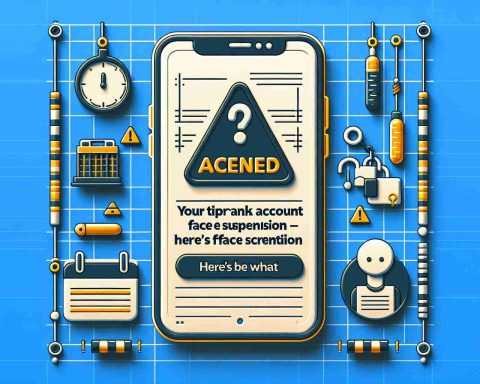- The SEC is adapting to blockchain innovations, focusing on cryptocurrencies and ICOs to enhance market transparency and security.
- Investments in tech-savvy personnel and infrastructure support the SEC in managing complex digital transactions efficiently.
- AI integration improves SEC surveillance, allowing for swift detection of market anomalies and fraudulent activities.
- The SEC’s proactive approaches could globally influence regulatory frameworks, leading to a more secure financial landscape.
- As a technological innovator, the SEC is setting new standards for financial oversight in the digital age.
The United States Securities and Exchange Commission (SEC) stands at the forefront of a transformative moment in financial regulation, as emerging technologies redefine their approach to oversight and enforcement. As dynamic blockchain innovations and artificial intelligence tools proliferate, the SEC is uniquely poised to tackle unforeseen challenges and harness new opportunities in the financial markets.
In recent years, the SEC has been proactive in addressing the rise of blockchain technology, especially with regard to cryptocurrencies and initial coin offerings (ICOs). The rapid evolution of these digital assets has pressed the SEC to adapt swiftly. They are now investing in tech-savvy personnel and improving their digital infrastructure to manage the intricate layers of blockchain transactions, ensuring transparency and security within the market.
Furthermore, with artificial intelligence (AI) leading the charge in revolutionizing financial strategies, the SEC is exploring how to integrate AI to enhance their surveillance systems. Their aim is to predict market anomalies and uncover fraudulent activities with unprecedented speed and accuracy. This forward-looking approach positions the SEC not only as a regulatory body but as a technological innovator in financial markets.
Looking ahead, the SEC’s adaptive strategies toward new technologies could reshape regulatory frameworks globally, enabling a more resilient and secure financial environment. Their ability to navigate and implement these changes will determine the future of financial regulation in an increasingly digital world. As the landscape continues to evolve, the SEC’s embrace of innovation sets a precedent that could redefine the standards of financial oversight.
The Future of Finance: How the SEC is Transforming Oversight with Technology
How is the SEC leveraging blockchain technology for financial regulation?
The SEC is actively engaging with blockchain technology to ensure that the burgeoning landscape of digital assets is well-regulated, enhancing transparency and security. By hiring tech-savvy personnel and upgrading their digital infrastructure, the SEC is well-prepared to monitor blockchain transactions meticulously. This involvement ensures that cryptocurrency and initial coin offering (ICO) markets operate under stringent regulatory oversight. The intricate nature of blockchain transactions demands a robust system to track asset flows, prevent fraud, and uphold market integrity.
What role does artificial intelligence play in the SEC’s financial oversight?
Artificial intelligence (AI) is a pivotal tool for the SEC’s enhanced surveillance systems, allowing the agency to predict market anomalies and identify fraudulent activities with unprecedented accuracy. By integrating AI, the SEC can analyze large datasets swiftly, recognize patterns, and react to irregular activities that might elude traditional methods. This adoption of AI in financial regulation denotes a technological evolution that promises not only improved oversight but also an innovation-driven approach to regulatory practices.
How might the SEC’s strategies influence global financial regulatory frameworks?
The SEC’s approach toward integrating advanced technologies like blockchain and AI could set a global precedent. Their strategies reflect a more adaptable and resilient regulatory system that could be mirrored by other countries aiming to modernize their financial oversight mechanisms. Not only does this anticipate a more secure financial environment, but it also suggests a shift in global standards that prioritizes innovation and technological integration. As a result, countries around the world might revise their frameworks to align with these evolving standards, ensuring greater global financial stability.
For more information on the SEC’s regulatory activities and their technological advancements, visit the official U.S. Securities and Exchange Commission website.










